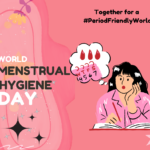In our quest for fairness and equality, it’s clear that grasping the intricacies of gender and embracing intersectionality are vital strides toward nurturing inclusive and transformative communities. Gender and intersectionality are lenses that help us delve into the nuances of societal issues, enhancing effective and sustainable solutions for maximum impact.
Gender is a rich tapestry of identities and roles, influenced by cultural, social, and historical contexts. Acknowledging this complexity, we start to see how individuals experience gender uniquely. This understanding unveils the deep-rooted inequalities and discrimination, especially impacting women and girls.
Intersectionality broadens our perspective beyond singular identities, recognizing the interconnectedness of various social factors like race, class, sexuality, and disability.
Kimberlé Crenshaw’s pioneering work sheds light on how these overlapping identities shape individuals’ experiences of privilege and oppression. Through this lens, we understand the distinct hurdles marginalized communities face, which call for holistic and inclusive approaches to address them.
Promoting Equity in Health
Acknowledging gender and intersectionality helps to craft impactful community initiatives, including those centered on health equity. Marginalized groups often encounter barriers to healthcare access due to a blend of factors like gender, race, socioeconomic status, and location. Healthcare interventions can be tailored to meet the specific needs of individuals if these intersections are recognized.
For instance, uncovering and addressing the “whys” of women of a specific ethnic group who are facing disparities in maternal healthcare within the healthcare system will require an intersectionality approach.
Integrating gender and intersectionality into health equity efforts is crucial for tackling the root causes of disparities and building resilient, inclusive communities. By acknowledging the interconnectedness of social identities, we can craft strategies that improve health outcomes and advance social justice – a journey toward creating healthier and fairer societies for all.
ARHR – Champions of this Approach
As an organization committed to health equity, particularly for women and girls, ARHR integrates gender and intersectionality into its programs to optimize impact. Through initiatives like “Putting Women and Girls at the Center of Primary Health Care”, ARHR adopts a comprehensive approach to address the diverse needs of women and girls across various identities.
This initiative underscores the significance of intersectionality in understanding and tackling health disparities among women and girls. By recognizing the interconnected nature of social identities, ARHR develops interventions that resonate with the realities of diverse women and girls.
Conclusion
Embracing an intersectional approach is not just about solving problems, it’s about forging a path toward gender equity and inclusivity. ARHR’s dedication to putting gender and intersectionality at the forefront of primary healthcare is a sure way to attain health justice. As we strive for a future where everyone receives dignified and equitable healthcare, ARHR’s commitment inspires progress and resilience on this journey.



